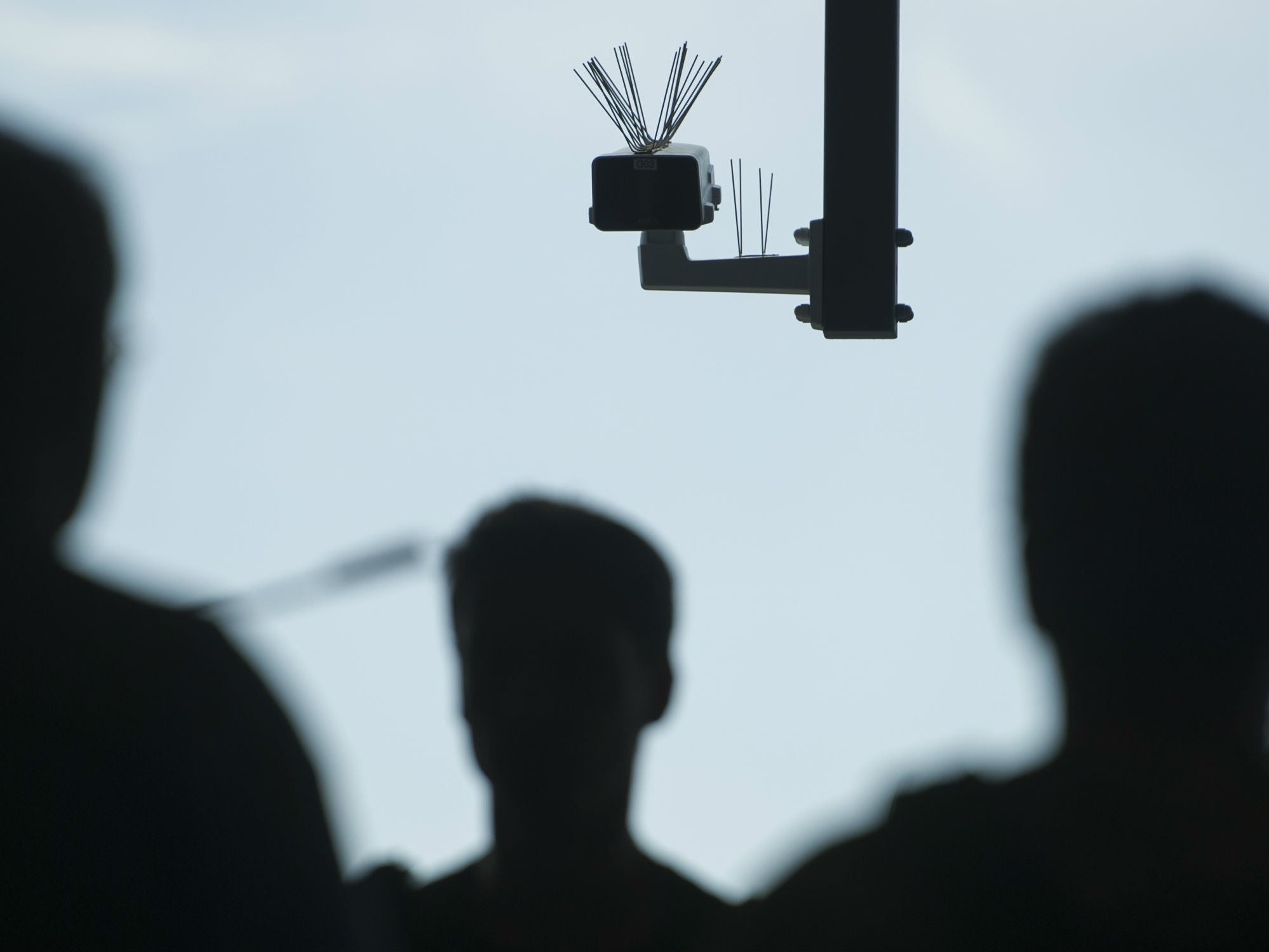Facial recognition: Labour vows to regulate 'lawless' technology if it wins power in next election
Exclusive: Liberal Democrats also vow to draw up new law as cross-party group of MPs calls for immediate stop to technology

Your support helps us to tell the story
From reproductive rights to climate change to Big Tech, The Independent is on the ground when the story is developing. Whether it's investigating the financials of Elon Musk's pro-Trump PAC or producing our latest documentary, 'The A Word', which shines a light on the American women fighting for reproductive rights, we know how important it is to parse out the facts from the messaging.
At such a critical moment in US history, we need reporters on the ground. Your donation allows us to keep sending journalists to speak to both sides of the story.
The Independent is trusted by Americans across the entire political spectrum. And unlike many other quality news outlets, we choose not to lock Americans out of our reporting and analysis with paywalls. We believe quality journalism should be available to everyone, paid for by those who can afford it.
Your support makes all the difference.The Labour Party has pledged to regulate facial recognition if it wins power at the next election amid concern over the spread of the “lawless” technology.
Diane Abbott, the shadow home secretary, told The Independent its use by both police forces and private companies threatens the public’s right to privacy.
“If ministers refuse to regulate the sector, the next Labour government will do it,” she added.
The Liberal Democrats and the Green Party have also given their backing to legal regulation, which has so far been refused by the Conservative government.
A policy passed at the Liberal Democrat conference said that if the party gains power, it will ban the use of facial recognition until the creation of laws to regulate the technology and ensure it is “unbiased, transparent and accurate”.
“The current use of automated facial recognition surveillance by a small number of police forces does not conform to these principles,” the document said. “We will therefore halt it immediately.”
Ms Abbott and Liberal Democrat leader Jo Swinson are among a group of 14 cross-party MPs who signed a letter calling for an immediate halt to the use of live facial recognition in British public spaces.
“We hold differing views about live facial recognition surveillance, ranging from serious concerns about its incompatibility with human rights, to the potential for discriminatory impact, the lack of safeguards, the lack of an evidence base, an unproven case of necessity or proportionality, the lack of a sufficient legal basis, the lack of parliamentary consideration, and the lack of a democratic mandate,” said the statement.
It was signed by politicians including Conservative MP David Davis and Green Party co-leader Siân Berry, as well as charities, human rights groups, technology experts and lawyers.
Mr Davis, a former cabinet minister, said facial recognition was potentially “a serious invasion of individual privacy and civil liberties”.
“We need a proper legal framework fit for these emerging technologies to balance policing effectiveness and privacy,” he added.
“There must be an immediate halt to the use of these systems to give parliament the chance to debate it properly and establish proper rules for the police to follow.”
It follows revelations that the software had been secretly used around King’s Cross railway station for two years, as well as in Sheffield’s Meadowhall shopping centre, a museum in Liverpool and conference centre in Birmingham.
The world’s first legal challenge over facial recognition was brought against South Wales Police earlier this year and the Metropolitan Police is also facing a judicial review.
An independent review of Scotland Yard’s trials found that 81 per cent of facial “matches” had wrongly identified innocent people as wanted criminals, while police were accused of failing to properly notify people they were being scanned.
The High Court found that although the technology had been used lawfully in two incidents reviewed in Cardiff, the “algorithms of the law must keep pace with new and emerging technologies”.
Judges said that facial recognition violates the right to privacy and “must not be undertaken other than for cogent and robust reasons”.
Big Brother Watch, which crowdfunded a legal challenge against the Metropolitan Police and home secretary, noted that three US cities had banned “lawless” facial recognition.
The organisation’s director, Silkie Carlo, said: “Tens of millions of people will now have been scanned by facial recognition cameras in this country, yet very few of us even know about it. The secret growth of this dangerous mass surveillance tool is undemocratic and unacceptable.
“There must be an urgent stop to this privacy disaster before it’s too late.”
Anna Bacciarelli, technology and human rights adviser at Amnesty International, said the technology may also threaten freedom of expression, association and assembly.
“Yet this technology is being used across the UK without adequate oversight and accountability,” she added.
“Given the huge risks to human rights, we urgently need a public debate about how and why this technology is being used – and who stands to benefit from its use.”
The government said a new Biometrics Oversight Board would oversee the technology, and it is working with police to produce operational guidance.
A Home Office spokesperson said: “We support the police as they trial new technologies to protect the public, including facial recognition, which has helped them identify, locate and arrest suspects that wouldn’t otherwise have been possible.
“The government welcomes the recent judgment which confirms that there is a clear and sufficient legal framework for the use of live facial recognition technology, including primary legislation.
“The government is always willing to consider specific proposals to improve the legal framework to promote public safety and confidence in the police.”
Join our commenting forum
Join thought-provoking conversations, follow other Independent readers and see their replies
Comments